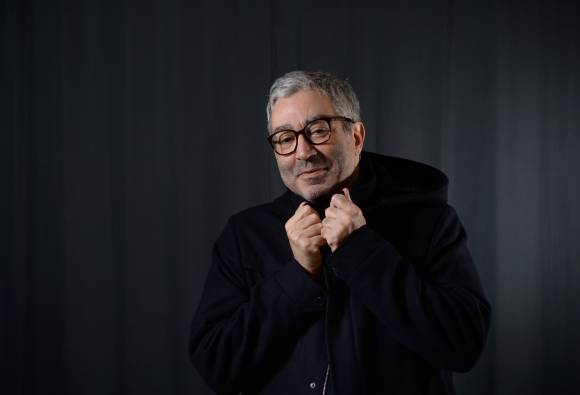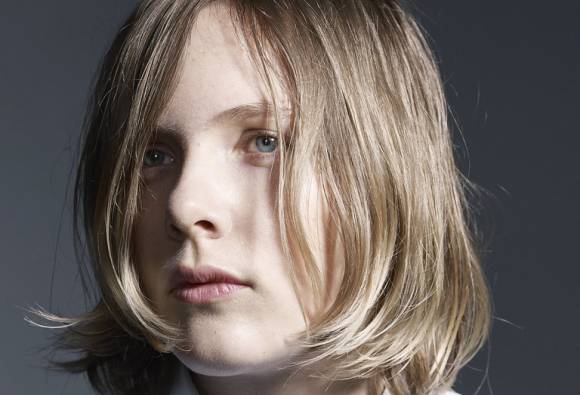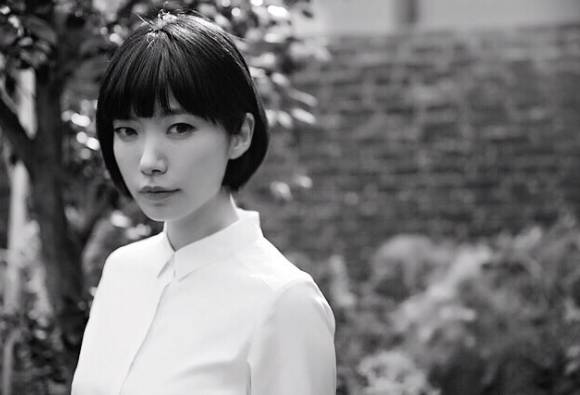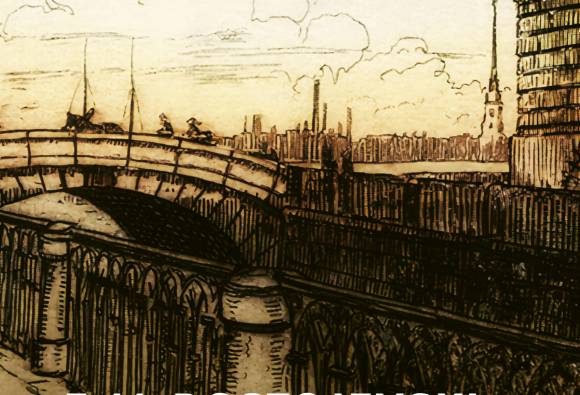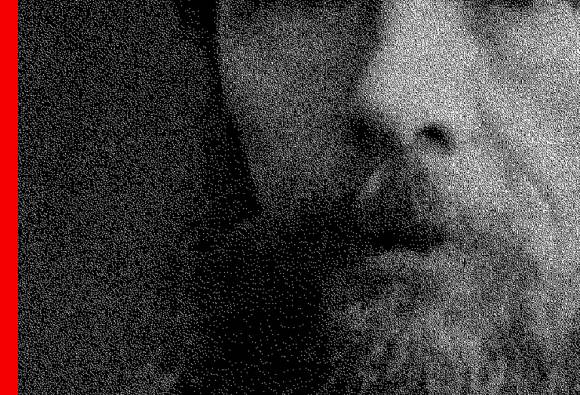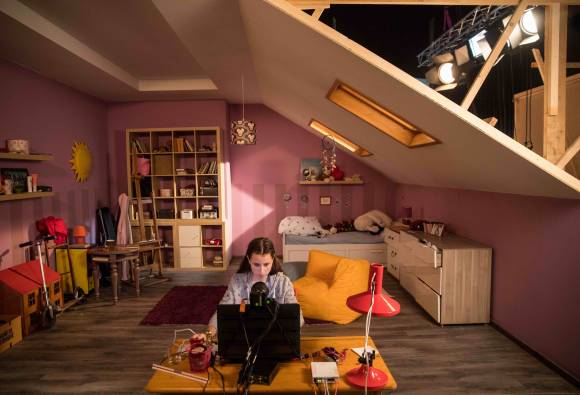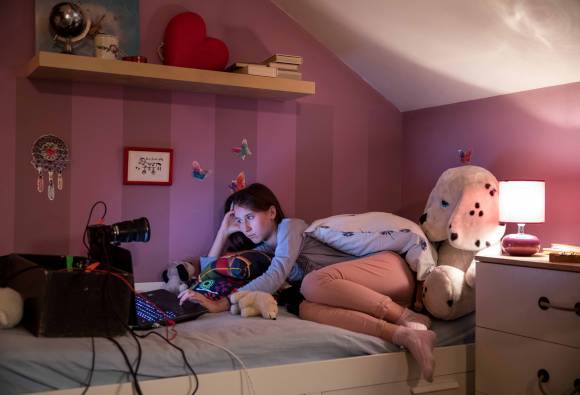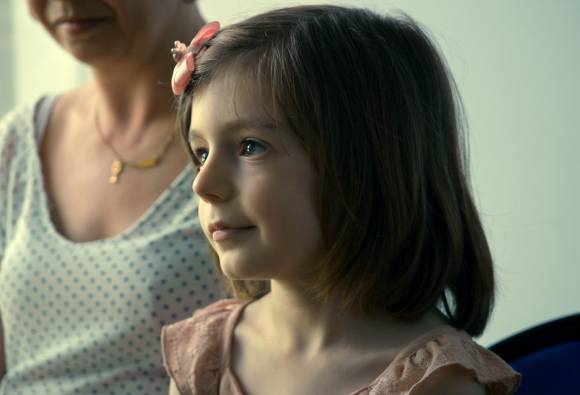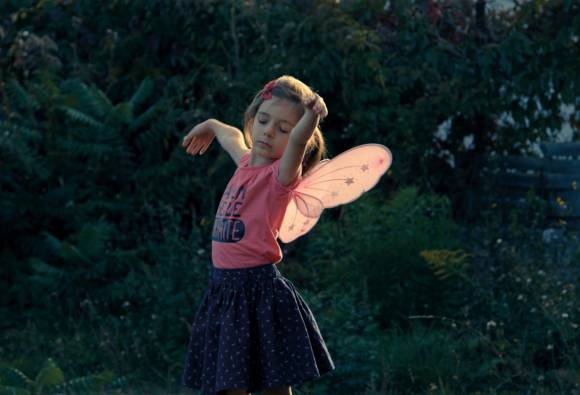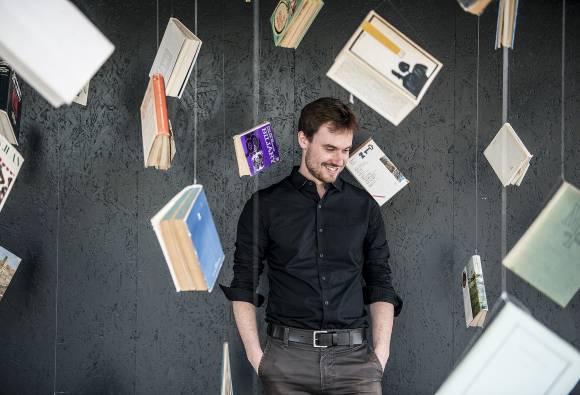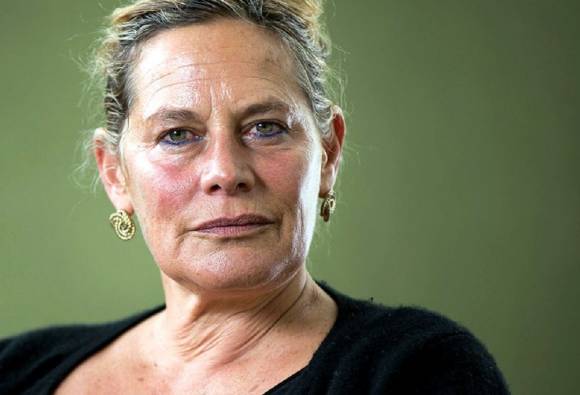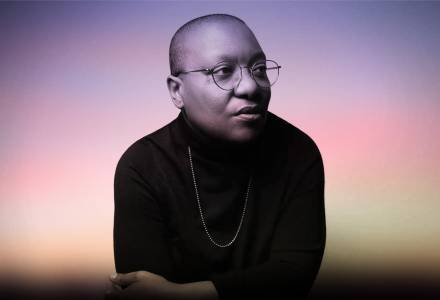
Fabula in Theory with Didier Eribon
The programme Fabula in theory in two theoretical tables shakes the state of human vulnerability and sensitivity. How to consider the individual and the society, how we treat vulnerable groups, minorities and their life circumstances, how small and brittle are we when faced with the all-encompassing system, and how vulnerable can we allow ourselves to be in this time of inhumaneness and social apathy just some of the questions we will be looking for together with one of the greatest French authors of our time, Didier Eribon, and currently the most outstanding name in Nigerian literature, Chimamanda Ngozi Adichie, who has won over both Anglophone and the general public.
In a lecture by the French sociologist and philosopher Didier Eribon (1953), we will face issues of social class, sexuality, intellectual community and the complex, often conflicting confluence of social and psychological identity.The conversation with the author will also be related to the Slovenian translation of his major work, Returning to Reims (Cf*, 2022), which begins with the authors return to the city he fled as soon as possible and without looking back. The weaving of his autobiography and a the tectonic social movement of his thoughts paint the image of the problematisation of the working class, the helplessness and power of the political left, and the importance of fighting for your own (and basic human) rights, but never at the expense of rejecting others or favouring your own identity. The author built his academic career all across the globe, as a sociology professor in Amiens, and as guest professor at the Californian University of Berkeley, the Institute of Advanced Studies in Princeton, the Harvard and the Yale, and the New York University and the University of Columbia. He drew international attention with his socially engaged autobiography Return to Reims (2009), in which he describes the fracturing of the French society. His work Insult and the Making of the Gay Self (1999) became a classic and one of the founding texts of queer studies. Among his latest published works we can find La société comme verdict (2013) and Principes d’une pensée critique (2016).
In collaboration with the *cf publishing house, Fabula is proud to present a Slovenian translation of Return to Reims.
The talk will be held in French with translation into Slovenian provided.

Fabula’s Literary Evening – Marieke Lucas Rijneveld: The Discomfort of Evening
Due to the author's obligations, Marieke Lucas Rijneveld's performance will take place virtually, on April 10, at 8 pm, on the websites of Fabula and Cankarjev dom. The conversation with the author, which will be subtitled in Slovene, will be led by Petra Meterc.
The Discomfort of Evening is a sharp and gripping story about a ten-year-old Jas who lives with her strictly religious parents and her siblings on a dairy farm where waste and frivolity are akin to sin. One icy morning, the disciplined rhythm of her family’s life is ruptured by a tragic accident, and Jas is convinced she is to blame. This changes everything for the family as the parents and sibling react to the death of a family member in different ways. Jas, together with her brothers and sisters, develops curiosity about the issue of death, and in a whirlwind of increasingly disturbing fantasies, dreams of the “the other side” and of salvation, not knowing where this dreaming will finally lead her. “Incredible”, “exciting”, “brilliant”, “beautiful” are just some of the superlatives the global media has found for this astounding debut, this fascinating study of grief informed by the authors personal experience at the loss of his brother.
The novel was translated by Mateja Seliškar Kenda.
Marieke Rijneveld (1991) is one of the greatest new voices in Dutch literature. His first poetry collection was awarded the C. Buddingh’ Prize for best poetry debut in 2015, with newspaper de Volkskrant naming it it the literary highlight of the year. In 2018, Atlas Contact published the author's first novel, The Discomfort of Evening, which won the prestigious ANV Debut Prize and was a national bestseller. The novel which shows the consequences of family trauma with brutal directness and surrealist imagery was partially inspired by the death of the author’s brother. In 2020, Rijneveld became the youngest author ever to win the International Booker prize.
An intensely raw, memorable debut ... Yet there is a bold beauty to the book, which for all its modernity seems to be set in a different age of automatic religious belief: the immensity and mystery of the universe coexisting alongside the claustrophobic community of farm, church and school. By using Jas’s everyday world as a metaphor for loneliness and fear, Rijneveld has created something exceptional. Financial Times
Fabula’s Literary Evening – Marieke Lucas Rijneveld: The Discomfort of Evening
The talk will be held in Dutch with translation into Slovenian provided.

Fabula’s literary evening – Mieko Kawakami: Summer stories
The virtual Q&A between Mieko Kawakami and Nagisa Moritoki Škof will take place on Thursday, 14 April, at the CD Club. The event will be accompanied by a butoh performance featuring Darinka Pillari. Slovenian subtitles.
Summer Stories, the latest novel by Japanese author of the middle generation Japanese writer of younger in-between population, fits into that sparsely populated and thus even more appreciated population of literary works that are adored by Western and Eastern critics and readers alike. It paints a portrait of contemporary womanhood in Japan and recounts the intimate journeys of three women as they confront oppressive mores and their own uncertainties on the road to finding peace and futures they can truly call their own. The characters and their stories show us the images of motherhood, birth, integrity of the female body, freedom, and difficult decisions many women must face. The novel showing incredible emotional relentlessness and depth was first published in 2008. It is divided into two sections, with the events of part happening 10 years later, giving time for tectonic movements in the lives of our main protagonists and making the novel even more powerfully insightful.
The novel was translated by Nina Habjan Villarreal and Domen Kavčič.
Mieko Kawakami (1976) made her literary debut as a poet in 2006,a year later published two short stories and for the second, entitled Breasts and Eggs, received the award for young perspective authors. Her most successful work to date, the novel Summer Stories, which came out in 2019 and brought her worldwide fame, was conceived as an expanded and revised version of her second short story collection. Her works are known for their experimental and poetic qualities, their insights into the female body, and their preoccupation with ethics and modern society. Mieko Kawakami has received several prestigious Japanese literary awards (Akutagawa, Tanizaki and Murasaki Shikibu awards) for her work, and the novel Summer Stories was also ranked among the top ten literary highlights in 2020 by Time magazine. The famous Japanese writer Haruki Murakami has likened her as “his favourite new novelist” and “a tree that is always ceaselessly growing and evolving”.
One of Japan's brightest stars is set to explode across the global skies of literature. Kawakami is both a writer’s writer and an entertainer, a thinker and constantly evolving stylist who manages to be highly readable and immensely popular. The Japan Times
Fabula’s literary evening – Mieko Kawakami: Summer stories
The event will be held in Japanese with translation into Slovenian provided.

Dostoyevsky, Publicist and Essayist
Postponed to January 2022
The Petersburg Chronicle (published in Slovenian by Goga) is the general name of Dostoyevsky’s feuilletons in the newspaper "St. Petersburg Vedomosti." The young author writes on the subject of Petersburg and perceives life critically, addressing the Russian national idea and independence. On this occasion, our esteemed guest will be Tatyana Kasatkina, Doctor of Philology, Head Researcher at the Gorky Institute of World Literature RAS, Head of the Centre “Dostoevsky and World Culture” at the Gorky Institute of World Literature RAS, president of the Research Committee for Dostoyevsky's Artistic Heritage within the Scientific Council for the History of World Culture, RAS.
The panel will be chaired by Dr. Urša Zabukovec and joined by two Slovenian panelists.
Dostoyevsky, Publicist and Essayist

Lyudmila Saraskina: Dostoyevsky
Lyudmila Ivanova Saraskina is one of the world’s foremost authorities on the life and work of F.M. Dostoyevsky. A Russian literary historian and biographer, Saraskina has devoted most of her life to studying the private and intellectual lives of Dostoyevsky and Solzhenitsyn, whose biographies have given her strong international visibility.
She is visiting Ljubljana at the invitation of LUD Literatura and Cankarjev dom; the Q&A will be conducted by translator (and the initiator of the translation of Dostoyevsky’s biography) Borut Kraševec.
Lyudmila Saraskina: Dostoyevsky

Enerstock Conference: Towards Smarter Solutions
Organised by:University of Ljubljana, Faculty of Mechanical Engineering & National Institute of Chemistry, Department of Inorganic Chemistry and Technology
Enerstock Conference: Towards Smarter Solutions
Registration

Czech Republic, 2020; 100' DCP
Three actresses, three children’s rooms, 10 days and 2458 sexual predators. An experiment that shines an urgent light on the taboo subject of the abuse of children on the internet. Three over-18 actresses with very young appearances are tasked with pretending they are 12 on fake social network profiles. In faithful copies of children’s rooms created in a film studio they chat and Skype with men of all ages who have searched for and contacted them online. The vast majority of these men demand video sex and send photos of their penises or links to porn.
Caught in the Net (V siti)
6,50 EUR
5% discount on online purchases cd-cc.si

France, Denmark, 2020; 88' DCP
8-year-old Sasha has always known she was a little girl, even though she was born a boy. As society fails to treat her like the other children her age – in her daily life at school, dance lessons or birthday parties – her supportive family leads a constant battle to make her difference understood and accepted.
Petite fille
6,50 EUR
5% discount on online purchases cd-cc.si

Marek Šindelka: Material Fatigue (Únava materiálu)
Masterful writing and an amazing reading experience. Material Fatigue is a comprehensive and melodious analysis of the spirit of the time. Tzum
Material Fatigue is a startling novel about refugees, about fleeing war-torn homes and a journey through uncharted and hostile territory. Employing a poetic language, it tells the story of two brothers, human shadows on the margins of society, seeking sanctuary in a world dominated by brutality and aversion to outsiders. As the brothers’ pain, anxiety, and fear intertwine, a universal image of human rootlessness and alienation emerges, and a metaphor of today’s Europe, reminiscent of an automated mechanism, an endless production cycle. Šindelka’s novel does not moralize or point fingers, but draws us into the life of another, whilst kindling our sensitivity and empathy for our fellow human beings.
The novel was translated by Nives Vidrih.
Marek Šindelka is one of the Czech Republic’s leading young authors. His multi-award-winning work has been translated into several languages. His style combines precise language, convincing narrative, and a great flair for involving the readers, confronting them with in-depth insights into mutual relationships.
The conversation with the author will be hosted by Slovenian journalist and television presenter Igor E. Bergant in Cankarjev dom. If the situation with the pandemic and the measures against the spread of COVID-19 will not allow live events yet, a live broadcast from Cankarjev dom will be arranged. The event will be interpreted into Slovenian.
Marek Šindelka's attendance at Fabula has been supported by the Czech Literary Centre.
Obisk prireditev v Cankarjevem domu skladno s spremenjenim odlokom o začasni omejitvi ponujanja kulturnih storitev končnim uporabnikom v Republiki Sloveniji. Varno na dogodke >>
Marek Šindelka: Material Fatigue (Únava materiálu)

Deborah Levy: The Man Who Saw Everything
One of the big stories in English fiction this decade has been the return and triumph of Deborah Levy ... You would call her example inspiring if it weren’t clearly impossible to emulate.
New Statesman
In 1988, Saul Adler crosses the famous zebra crossing on Abbey Road in London. He gets (perhaps then, perhaps later) hit by a car. Seemingly injured, he visits his girlfriend, artist Jennifer Moreau; they split up after engaging in sex. As a historian, Saul then carries out a research trip to East Germany just before the fall of the wall, where he enters a bizarre frenzy of Marxism, eroticism, guilt, and pop culture all blending to make a chaotic whole, focusing on what people are willing to overlook to convey an impression – in the eyes of History and our own eyes – of being who we want to believe we are. How much damage do we cause ourselves and the people around us by supressing things? The Man Who Saw Everything is a novel that deconstructs itself so that it can be reassembled in the end, which leads us to finish the last page and instantly start reading it all over again.
The novel was translated by Jernej Županič.
Deborah Levy is one of the UK’s most prominent contemporary writers and playwrights, and one of the great thinkers of our time. Her masterful autobiographical collection is regarded as a ground-breaking work of autofiction and a major essayistic accomplishment. Her novels have received several nominations for the Man Booker Prize, including The Man Who Saw Everything (2019).
Due to the pandemic and measures against the spread of COVID-19, the literary event with Deborah Levy will take place virtually. The recording of the virtual conversation with the author, prepared by the Fabula film crew, will be hosted Slovenian editor, publicist and doctor of history Manca G. Renko. The recording will have Slovenian subtitles and will premiere on Cankarjev dom's website, www.cd-cc.si, and Cankarjev dom's social media channels.
Deborah Levy: The Man Who Saw Everything
Brezplačen ogled
